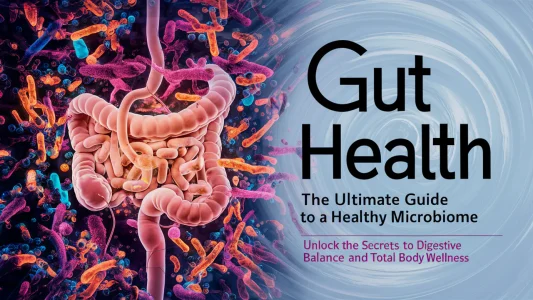For years, the phrase “trust your gut” was little more than a figure of speech — a poetic nod to intuition. But science is proving that our gut might indeed hold the key to more than just instinct. From digestion to mood, immunity to metabolism, the trillions of microorganisms living inside us — collectively known as the gut microbiome — are emerging as one of the most powerful forces shaping our overall health.
Once dismissed as background biology, the gut is now at the center of a medical revolution. Researchers are discovering that a balanced microbiome can influence everything from how we think and feel to how well we fight disease. And as it turns out, taking care of your gut might just be the most important health investment you can make.
The Gut: Your Body’s Hidden Superorgan
Your gut microbiome is a bustling ecosystem of bacteria, fungi, viruses, and other microbes — an estimated 100 trillion of them, outnumbering your human cells ten to one. These tiny organisms work in harmony with your body, breaking down food, synthesizing vitamins, regulating hormones, and defending against pathogens.
But their influence doesn’t stop there. Modern science now refers to the gut as a “second brain.” Through a complex network of nerves and chemical signals known as the gut-brain axis, your microbiome communicates directly with your central nervous system.
That connection helps explain why gut issues often accompany stress, anxiety, or depression — and why improving gut health can have a profound effect on mental well-being.
As Dr. Emeran Mayer, author of The Mind-Gut Connection, puts it: “The state of your gut microbiome can shape your mood, your cravings, even the way you perceive the world.”
From Food to Feelings: How the Microbiome Shapes Your Health
Every meal you eat feeds not just you, but also your microbes. A diet rich in fiber, fermented foods, and plant diversity supports beneficial bacteria, while processed foods, sugar, and antibiotics can wipe them out — leading to an imbalance known as dysbiosis.
When that happens, it’s not just your digestion that suffers. Studies link dysbiosis to conditions like obesity, type 2 diabetes, autoimmune disorders, and even cognitive decline.
But perhaps the most fascinating link is between the gut and the brain. Your gut bacteria produce neurotransmitters like serotonin and dopamine — the same chemicals that regulate mood and behavior. In fact, about 90% of the body’s serotonin is produced in the gut, not the brain.
This discovery has opened a new field of study called psychobiotics — exploring how specific probiotics might improve mental health. Early research suggests that certain bacterial strains may help reduce anxiety, boost mood, and even enhance cognitive function.
The old saying “you are what you eat” might finally be evolving into “you feel what you eat.”
The Immune System’s Command Center
About 70% of the body’s immune cells reside in the gut. The microbiome acts as a kind of teacher — training immune cells to recognize friends from foes. When balanced, it helps maintain harmony; when disrupted, it can trigger inflammation and autoimmune reactions.
Scientists now believe that an imbalanced gut microbiome may contribute to a wide range of conditions — from allergies and asthma to arthritis and inflammatory bowel disease.
In a world where chronic inflammation is linked to everything from heart disease to cancer, keeping the gut’s ecosystem healthy could be one of the most effective ways to strengthen immunity and prevent long-term illness.
Modern Life and the Microbiome Crisis
If the gut is so vital, why are so many of us struggling with poor gut health? The answer lies in modern living.
Our diets are increasingly low in fiber and high in processed foods, which starve beneficial microbes of their natural fuel. Overuse of antibiotics — while lifesaving — can also wipe out good bacteria along with the bad. Add chronic stress, lack of sleep, and environmental toxins, and you have a recipe for microbiome disruption.
The result? A generation plagued by digestive disorders, fatigue, mood swings, and immune dysfunction — symptoms often treated in isolation but rooted in the same underlying problem: gut imbalance.
Healing from the Inside Out
The good news is that your microbiome is remarkably adaptable. Within weeks of changing your diet or lifestyle, the microbial population in your gut can shift — and with it, your health.
Here are key steps to support your gut health:
- Feed your microbes. Eat a variety of plant-based foods — fruits, vegetables, legumes, nuts, and whole grains. Fiber acts as prebiotic fuel, helping beneficial bacteria thrive.
- Add fermented foods. Yogurt, kefir, sauerkraut, kimchi, and kombucha introduce probiotics — live bacteria that replenish your microbiome.
- Cut back on ultra-processed foods. Artificial sweeteners and additives can disrupt bacterial balance.
- Manage stress. Meditation, deep breathing, and adequate sleep support a healthy gut-brain axis.
- Be mindful with antibiotics. Take them only when necessary and follow up with probiotic-rich foods afterward.
Your gut doesn’t just respond to what you eat — it also mirrors how you live. The more you align your habits with your body’s natural rhythms, the better your gut can serve you.
The Future: Personalized Gut Health
The frontier of gut science is moving fast. Soon, we may see personalized nutrition plans based on microbiome analysis, tailored to each person’s unique microbial makeup. Companies are already offering at-home gut tests that can identify imbalances and suggest specific dietary changes or supplements.
Researchers are even exploring fecal microbiota transplants (FMTs) — transferring gut bacteria from healthy donors to patients with severe gut disorders — with promising results.
It’s an exciting glimpse into a future where medicine doesn’t just treat symptoms, but restores harmony from within.
Trust Your Gut — Literally
Your microbiome is not just a passenger in your body; it’s an active partner in your health. When it thrives, so do you. When it falters, the effects ripple throughout your entire system.
So the next time you think about health, don’t just focus on the gym or the doctor’s office — start with your gut.
Because in the end, the secret to total well-being might not lie in the latest supplement or fitness fad, but in nurturing the ancient, invisible world inside you.
Your gut instinct, it turns out, was right all along.




